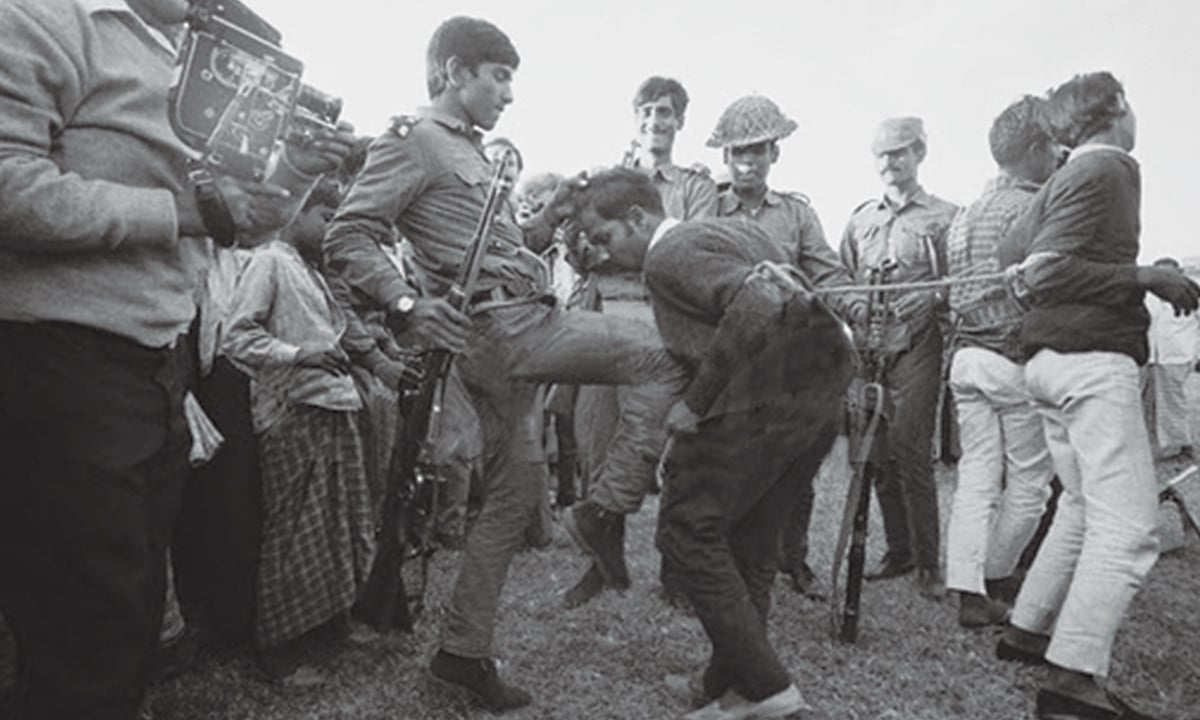~Hi Aparajita, your article on the ‘war heroines of Bangladesh’ touched a chord in my heart. Belonging to a family of freedom fighters, I am utterly grateful that you and writers like you have brought to light the tragedies that were neglected for so long. Reading your work gave me the courage to pen down my story too, which I share with you today.
29th March 71, The day my grandparent’s village was plundered by the razakars*, the day my father saw his parents brutally slaughtered and his elder sister kidnapped forever, the day his brother barely 17 years old selflessly sacrificed himself to protect his younger siblings (including my father), the day after which nothing remained same.
Honestly, my initial intention behind this article was to pay homage to my grandparents, my aunt, and my uncle. However, as I picked up my pen, I was left overwhelmed by my feelings.
How do you cope up with the damages of war? Can the psychological effects on little children who witnessed their parents being brutally slaughtered in front of their eyes, be undone? Can the victims of rape and sexual assaults ever overcome the fear? Can these women learn to survive and find happiness or even a little comfort? And what about the war babies, can they overcome the contempt of their family and be accepted in society?
With the advent of martial law in Pakistan, the Pakistani Army too underwent a sort of moral bankruptcy (American Consul General to the then East Pakistan, Archer Blood’s telegram dated April 6, 1971, to the US Secretary of State). While the greed for power and money were at utmost priority for the senior officers of the army, the juniors followed suit with corruption, smuggling, looting, and theft. Their ethics and morality hit the lowest when all forms of conduct and discipline were lost to the lust for wine, women, and wealth.
“While learning the art of politics in this newly assigned role to themselves, they (Pakistani Army) gradually abandoned their primary function of the art of soldering, they also started amassing wealth and usurping status for themselves.” –Rear Admiral M Sharif, Flag Officer Commanding the Pakistan Navy in East Pakistan during his deposition before the Hamoodur Rehman Commission
“General Niazi asked as to how many Hindus we had killed. In May there was an order in writing to kill Hindus. This order was from Brigadier Abdullah Malik of 23 Brigade.” –Lt. Col Aziz Ahmed Khan, Commanding Officer of 8 Baluch, said in his deposition before the Hamoodur Rehman Commission
Cruel and senseless slaughtering of Bengalis and their sympathisers during the ‘sweep operations’; kidnapping, rape, and torture of East Pakistani women by the Officers and men of the Pak army, all for vengeance; the murder of intellectuals and professionals to curb all voices of dissent and discussions.
I can’t help but question, who gave the West Pakistanis the permission to singularly own entire Pakistan – Was this Pakistan (East as well as West) not as much ours as theirs? Was all this only to quench their need and wish to establish a false sense of cultural and ethnic superiority of the West Pakistanis? Was it so difficult to accept our differences that they preferred to wage a war against innocent Bengali girls – our mothers, our sisters, and our daughters – many of whom were as young as 9 years of age? Was their hatred towards us so strong that they literally started to weed out the Bengalis who followed even the most inconsequential Hindu traditions like wearing saris or bindis?
1971 for a lot of us, became the year when the Bengalis were hunted and slaughtered by the very army who promised to keep us safe in 1947.
“The women bathe openly so that men walking by can see them, and they wear saris that with one pull fall off their body, like Indians. They are very attached to music, like Hindus, and they have their daughters dance for guests, they take pride in this dancing and music, like prostitutes. My daughter does not dance, neither does my wife. This music and dancing aren’t Islamic. Our ladies are not prostitutes like Bengalis.” –words of a West Pakistani officer, Faisal, who was posted in East Pakistan in 1971
It’s been 50 years now and still, the memories of the past drive me tearfully sentimental. My mind casually drifts to present Pakistan. I wonder if things are better there now? If people have learned to live together – without the presumptuous air of religious, cultural, or ethnic superiority of some kind? Are women especially those of the minority, still dehumanised and treated as expendables? Is oppression, kidnapping, and torture still the modus operandi of the Pakistan Army? Is curbing dissent and all voices of reason, still the sad truth of Pakistan? Is all life equal in Pakistan or are there still some who are treated as enemies in their own land?
To my dismay, the answer to all these doubts saddens me more than anything else today. As the truth of the past is denied and countered most vehemently, the lessons stand forgotten, thus clouding the future with fears of a repeat of ’71. Either within Pakistan, against the Baluchis and Sindhis, or elsewhere where Pakistan Army interferes.
[Razakars* (???????): During the 1971 war, the Pakistani Army organised an anti-Bangladesh paramilitary force in East Pakistan (present Bangladesh) with an aim to assist the Pakistan Army in suppressing the freedom movement of Bangladesh.]
(This article was contributed to The Wonk by Priya Baisya. The writer is a former student of Manipal University, and currently resides in Chittagong, Bangladesh. The views and opinions expressed in the article are those of the writer.)

